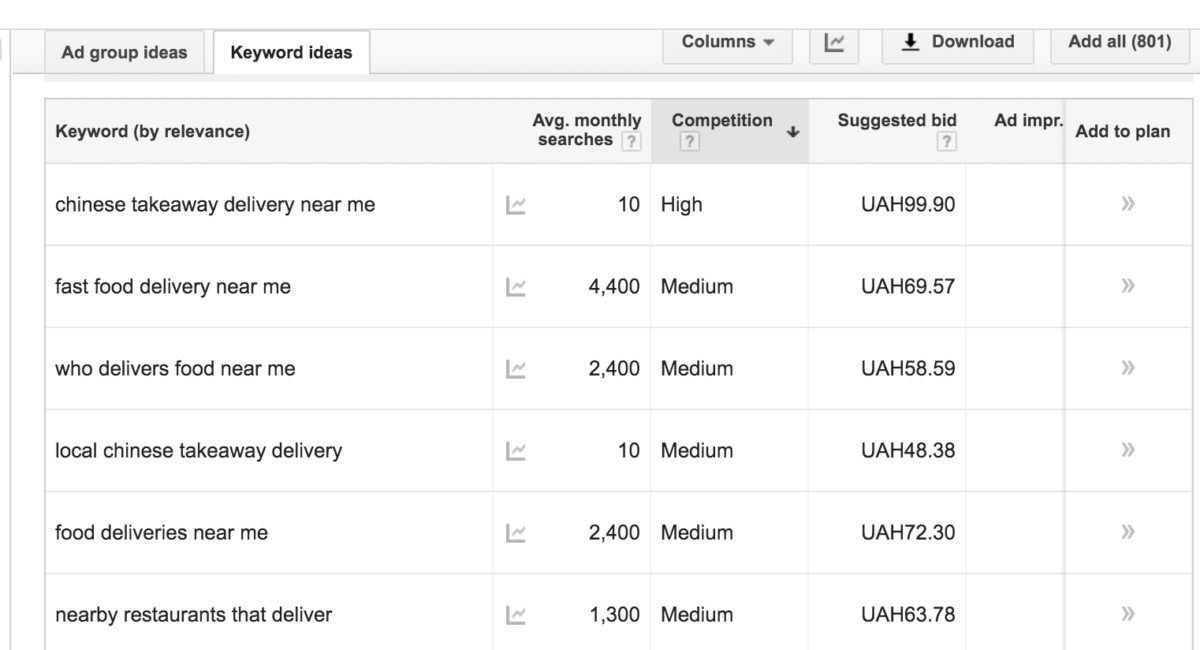As apps for mental health are becoming more popular and the market is far from being saturated, building a mental health app may well become your next successful venture. To give you an understanding of what the market looks like and its many nuances, we hand-picked the best mental health apps available right now and pinpointed what made them succeed.
We did not include Headspace and Calm, as these are highly popular and well-advertised applications, instead opting to focus on unique mental health apps recognized across different categories.
Lets’ start.
BlueIce
Category: Evidence based mental health apps for youth and kids
BlueIce is aimed at helping teenagers manage their emotions and prevent self-harm with a wide variety of different features. Available for both Apple and Android devices, the application was developed by Paul Stallard from Oxford Health NHS Foundation Trust (Foundation Trusts are NHS’s organizations with a strong local reach). To make it as effective as possible, teenager with lived experience of self-harm took part in the process of creating BlueIce.
Here are the key features:
- Mood checker with notifications
- Simple mood diary
- Mood lifter with a set of proposed activities
- Emergency contact numbers
- Additional protection and privacy layer with PIN
- Personalized sections
- Smart safety checks for self-harm prevention
Now, let’s take a quick look at BlueIce’s biggest features — Mood Checker and Mood Lifter.
The first relies on a “mood wheel”: a user chooses how they feel from a wide range of options on the wheel, take short notes, and then can identify mood patterns and triggers in the Mood Calendar across long periods of time.

Meanwhile, the Mood Lifter section offers a comprehensive activity suite aimed at lowering stress.
Here are its key components:
- Music and photo libraries
- Physical activities
- Mood-changing activities
- Mindfulness and relaxation exercises
- Contact a friend
- Negative thoughts spotting
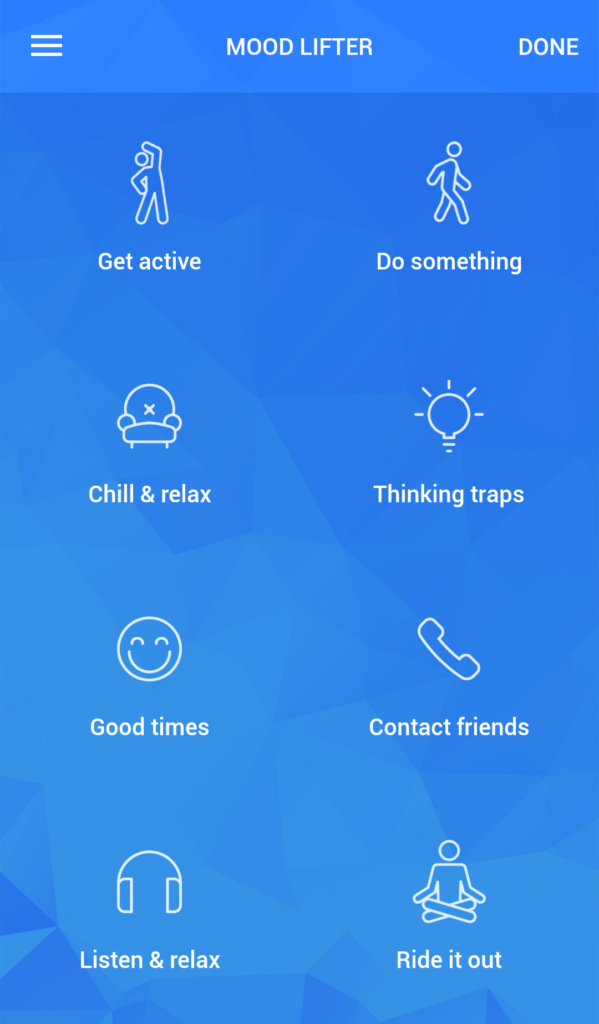
BlueIce’s trial showed that the app can help teenagers manage their stress levels and self-harm urges alongside traditional face-to-face communication with a mental health professional. This and its comprehensive approach make BlueIce one of the top mental health apps available. The application is free, but prescription-only.
Cove
Category: Music Apps For Mental Health
Not everyone will enjoy writing down their thoughts into a mood journal, looking for other ways to improve well-being. Highly praised by top publications like Wired, The Next Web, and Guardian, the Cove app address that by offering simple music-making tools and eye-pleasing visuals designed for reducing anxiety and stress through self-expression. The process is easy: a user selects one of the six moods and then taps to choose chords, melody, and instruments (more than thirty are available) to create their own songs.
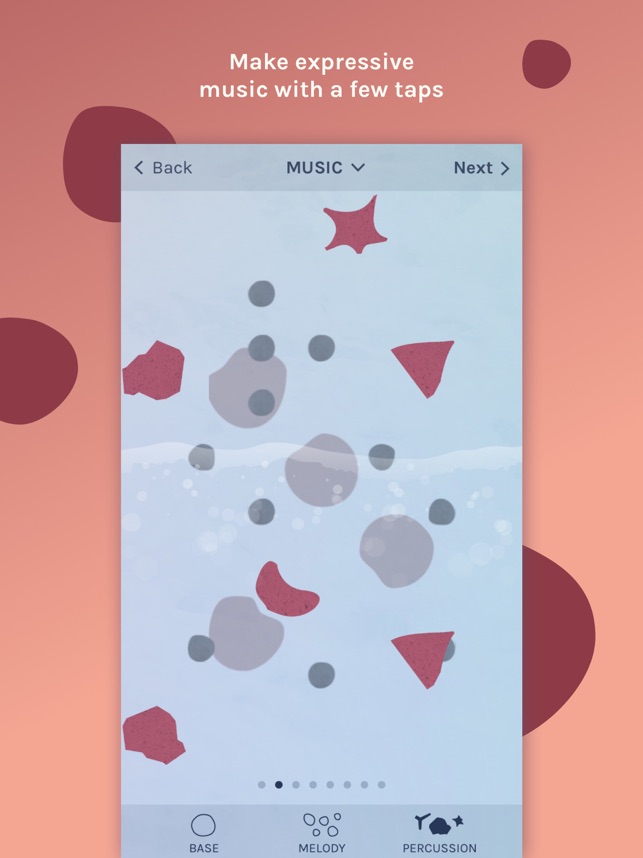
Cove was developed with the help of clinicians and other medical experts as well as tested, evaluated, and trialed in the NHS and other health organizations. Although Cove won’t replace professional treatment, it can be used alongside talking therapy and counselling, or simply to relax for a few minutes and enjoy the process of creating music anywhere you find comfortable.
Users have met Cove with high praise, mentioning its therapeutic effect, that it helps to cope with negative thinking, and has easy-on-the-eye visuals. As for the media, Guardian called it one of the best medical apps, and Wired UK wrote that Cove will upend user expectations when it comes to what a journaling app can be (Cove can be referred to as a music journaling app).
The app is available for free for iOS devices only.
Xmed Health
Category: Social Media-like Apps for Mental Health
Although social media platforms have grown to be stress-inducing for many users, people’s love for socializing online can channeled to alleviate modern stressors and solve other mental health issues. The Xmed app may be the best example of that, offering users a health and lifestyle mobile ecosystem, a social network, and artificial intelligence (AI) algorithms in one package.
Here is how it works: AI asks a series of questions to identify a user’s health issue, juxtaposes that data with available medical data and information provided by other app users, and arrives at a conclusion. The user can then start talking with certified mental health professionals to tackle the problem, as well as discuss it with people who have the same issue in the app’s in-built social media network.
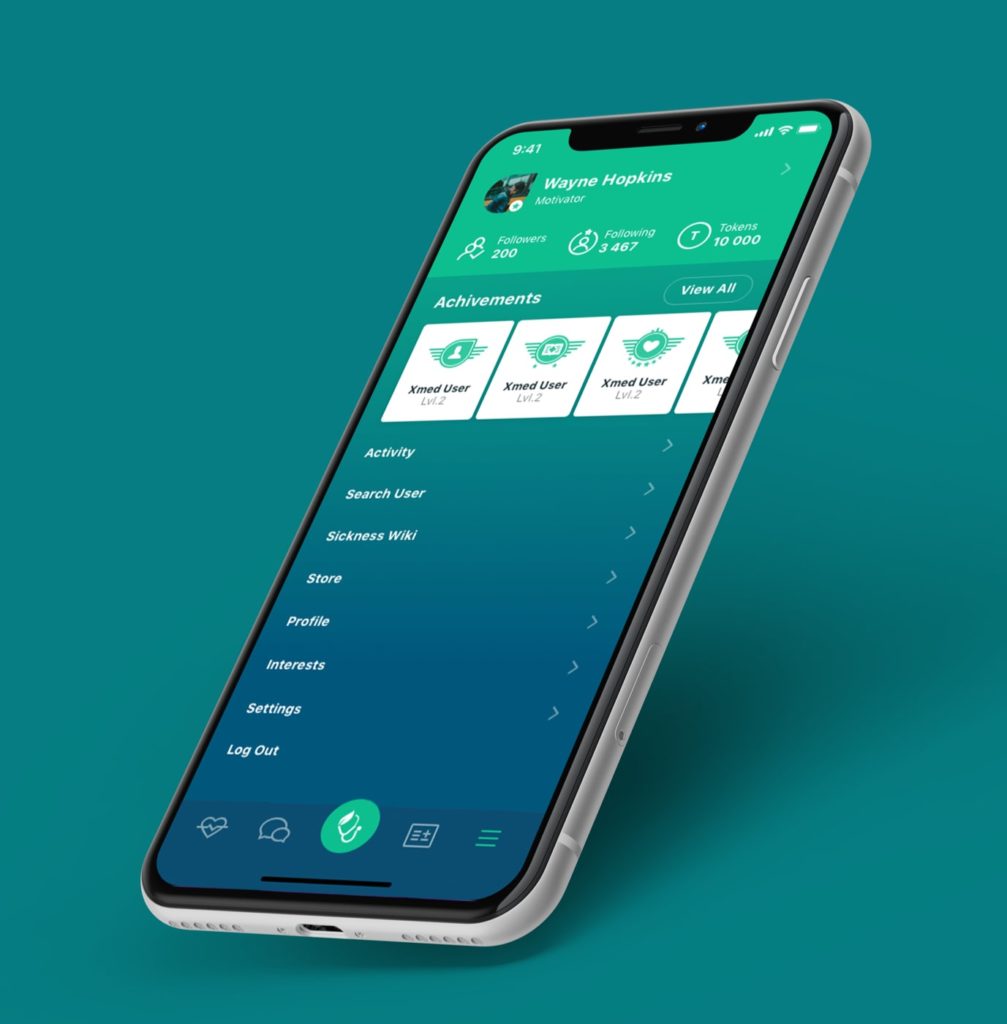
Apart from its uniqueness and technological capabilities, the Xmed Health also has a well thought out flow, whose primary focus is to help a user solve their issue, beautiful design and animations, and gamification with levelling up and achievements.
On top of all this, you can use the app to identify other health issues. making Xmed Health not only one of the best mental health apps, but also a solid health app in general.
Xmed Health is available in the Appstore.
My Possible Self
Categories: Mental health therapy apps, Mental health tracking apps
My Possible Self promises to help its users lower stress and anxiety levels in eight weeks with a range of features backed up by clinically approved content. To deliver on the promise, the app offers over a wide range of learning modules aimed at various stress-inducing situations in life.
The modules include:
- Stress and overload management
- Fear and anxiety management
- Overcoming loss and big life changes
- Problem solving
- Happiness and well-being management
- Tackling negative thinking
- Returning to pleasant activities
- Improving daily communication
The list does not end there, as the app’s creators continuously update it with different new modules. The first learning module is free, but to access the rest users needs to have a subscription.
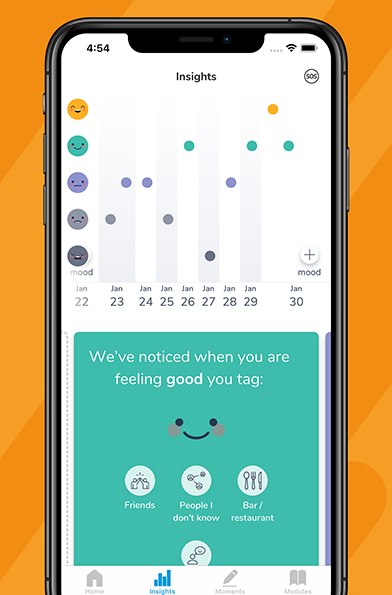
Still, the app has a number of other aspects that make it one of the best mental health apps. There is a comprehensive mood tracking tool/dairy, created with the help of the company’s in-house psychologists. A user can track their mood daily, selecting how they feel and pinpointing activities, people, and places that influence their mood and well-being.
Working alongside the tracking tool is the Mood History and Insights features that help users detect mood patterns and act accordingly to improve how they feel. The latter displays mood shifts in a comprehensive chart, showing the patterns and proposing potentially suitable lifestyle changes with the help of custom algorithms. What is more, users can add written notes and images to every mood entry — a small but nice touch that enriches the experience.
The content used in My Possible Self is clinically and statistically proven to lower stress and improve well-being in an eight weeks’ time. To ensure that, the creators partnered with a leading non-profit mental health research facility called The Black Dog Institute.
My Possible Self was warmly received by users and praised by media outlets like London Evening Standard and Buzzfeed. Is is available both in the Appstore and Google Play.
Happify
Categories: Event based mental health apps, Gamified mental health apps
Happify has a lot to offer. The app uses a set of comprehensive features that rely on science-based games and activities to help users fight stress consistently across all life areas.
At the app’s centre are Tracks, a section with stretches of different simple activities that help users improve their well-being on a daily basis. These include, for example, singling out small moments in your day that made you feel good and choosing a person to be thankful to. Every user has a progression scale for each track as well as six skills they upgrade by completing it: Savor, Thank, Aspire, Give, Empathize, and Revive. There over sixty available tracks for different aspects of life, part of them only through subscription.
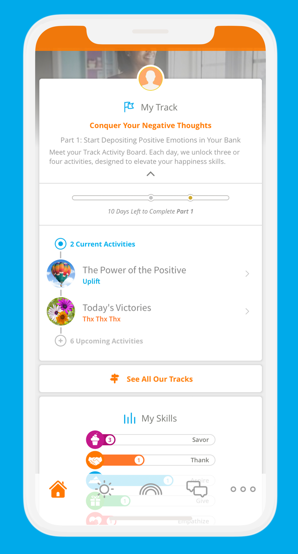
For those who want small bits instead of a long progression, there is an Instant Play section. Here, users can complete activities separately for each of the aforementioned skills.
Other features include:
- Happify Daily — articles, videos, infographics, and other types of content related to improving emotional well-being
- Community — a minimalist social network users can choose to be part of and share the activities completed for the skills with others
- Negative Knockout — a game where you bring down your negative emotions in style of Angry Birds.
The feature list is bigger still. For example, the app offers a twenty-page character strength report for each user, compiled in partnership with The VIA Institute. Meanwhile, Happify’s approaches were developed by leading scientists and experts in positive psychology, cognitive behavioural therapy, and mindfulness.
Happify was widely praised by users and media, including reviews in ABC World News and The New York Times. The company also claims that eight-six percent of their regular users report improved well-being in two month since they started using the app.
Happify is available for iOS and Android. Part of the features are free, while the rest can be accessed by subscribing.
What Makes Top Mental Health Succeed
There is a pattern to why the aforementioned mental health apps enjoy success — they all tick the same important boxes. Here are the success factors:
- Mental health professionals should be involved in as many stages as possible
- The app should have a diverse set of features for a user to choose from
- The features should be backed up by scientific research
- The app should have its unique feature, or approach a common feature from a different angle
- Mood journal is an important feature
- Gamification helps to keep the users engaged
- The app should have an appealing design
Now that you have taken a closer look at the top apps for mental health and what makes them so, you can start planning your own unique mobile product for those who want to tackle their mental health issues in a handy, clear, and pleasant way.
Good luck!
If you want to learn more about digital healthcare technologies, see some of our recent articles on the topic:
If you need a consultation about your mental health app or other healthcare project, get in touch with our experts.


